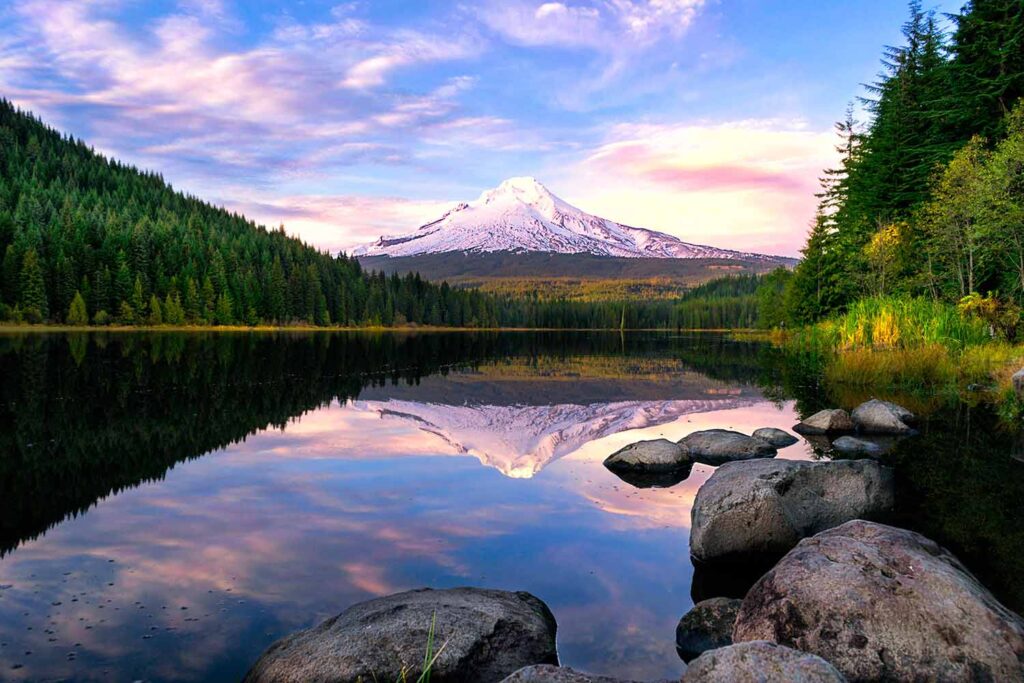Is Marijuana Legal in Oregon?

Oregon is one of the first states in the U.S. to legalize the use of marijuana with a history dating back to 1998. Although the state didn’t legalize recreational use until more than a decade later, its pro-marijuana policies make up for this. The state has one of the most considerate marijuana allowances and policies across the country. There are however some drawbacks to consider if you’re visiting Oregon.
For instance, the state does not offer reciprocity to out-of-state medical marijuana patients. Oregon’s list of qualifying conditions is also not as extensive as some other states’. Here’s all you should know about marijuana legalization in the state.
Is weed legal in Oregon?
Yes, the recreational use of weed by adults 21 and over is legal in Oregon.
When did weed become legal in Oregon?
Recreational use of cannabis was legalized in Oregon in 2014.
Are edibles legal in Oregon?
Yes, edibles are legal in the state.
Is medical marijuana legal in Oregon?
Yes, medical marijuana is legal in Oregon. It has been legal in the state since 1998.
How to get medical marijuana in Oregon
Medical marijuana patients can purchase cannabis from either a retailer that’s licensed by the OLCC or an OMMP-approved dispensary.
Can I go to a dispensary without a card in Oregon?
No, you’ll need to present an MMJ card to purchase medical cannabis from a retailer or dispensary in Oregon.
How long does it take to get your medical card in Oregon?
Applications for medical marijuana cards are typically processed, approved, and delivered within 30 days.
Does Oregon accept out-of-state MMJ cards?
Unfortunately, Oregon does not accept out-of-state medical marijuana cards. However, visiting adults can make legal purchases from the recreational market.
Marijuana bills/laws in Oregon & key questions
Oregon became one of the first states in the U.S. to implement a medical marijuana program when voters passed the Oregon Medical Marijuana Act (Measure 67) in 1998. Measure 67 made it lawful for patients with any qualifying condition to use marijuana for medicinal purposes. Subsequently, in 2014, voters in the state approved the Control, Regulation, and Taxation of Marijuana and Industrial Hemp Act (Measure 91). This measure legalized the recreational use of cannabis across Oregon.
Since then, supporting laws have been created to further improve the legal marijuana industry. For instance, in December 2018 the Oregon Liquor Control Commission (OLCC) tightened its licensing rules to curb illegal marijuana sales in the state. By 2019, the OLCC was further empowered by the passage of SB 218. This bill essentially allows the OLCC to refuse initial production licenses at its discretion.
How much marijuana can I have in Oregon? (in oz)
Recreational users can purchase and possess up to an ounce of cannabis flower. They can also possess up to 72 ounces of cannabis products in solid form. However, medical marijuana patients can purchase and possess up to 24 ounces of cannabis flower and 16 ounces in solid form.
Is Marijuana decriminalized in Oregon?
Yes, marijuana possession is currently decriminalized across Oregon.
Is there a fine or penalty for marijuana possession in Oregon?
No, there are no fines or penalties for possessions within the legal threshold.
How many cannabis plants per household in Oregon?
Recreational users can grow up to 4 marijuana plants at home. Tenants are advised to get permission from their landlords before cultivating marijuana at home. Meanwhile, medical marijuana patients can cultivate up to six mature plants and 12 immature ones.
Oregon dispensaries regulations
The Oregon Health Authority is responsible for licensing dispensaries and regulating the legal medical marijuana market across the state. The Oregon Liquor Control Commission (OLCC) is responsible for regulating the recreational weed market in the state.
Oregon growers regulations
The Oregon Health Authority regulates the cultivation of marijuana in Oregon.
Closing thoughts
Oregon has a very advanced cannabis industry and this is perhaps down to the fact that it has had relevant legislation since 1998. It’s one of the states that show how voters can express their willingness to enact cannabis legislation. The state’s provision of unique limits for different cannabis product types essentially reflects how its marijuana industry has evolved over the years.
